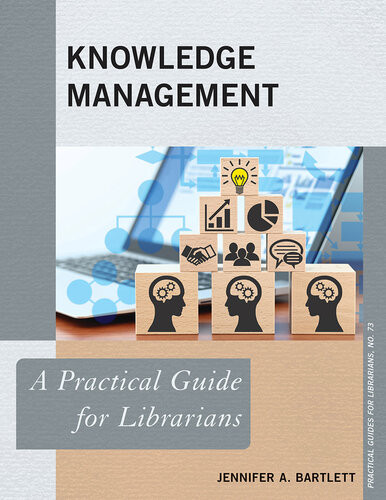

Most ebook files are in PDF format, so you can easily read them using various software such as Foxit Reader or directly on the Google Chrome browser.
Some ebook files are released by publishers in other formats such as .awz, .mobi, .epub, .fb2, etc. You may need to install specific software to read these formats on mobile/PC, such as Calibre.
Please read the tutorial at this link: https://ebookbell.com/faq
We offer FREE conversion to the popular formats you request; however, this may take some time. Therefore, right after payment, please email us, and we will try to provide the service as quickly as possible.
For some exceptional file formats or broken links (if any), please refrain from opening any disputes. Instead, email us first, and we will try to assist within a maximum of 6 hours.
EbookBell Team

4.4
62 reviewsWhile librarians and information professional are experts at providing resources to users, managing their own internal working knowledge and information can be a challenge. As information environments continue to become more complex, librarians and other information professionals must build on the existing expertise and skills within their organizations to keep them relevant to the information needs of their patrons and communities. Knowledge management (KM) is an intentional set of strategies intended to capture, preserve, and use human knowledge from employees to further the goals of an organization. Knowledge Management: A Practical Guide for Librarians will help librarians recognize, organize, communicate, and leverage both the tacit and explicit knowledge already in their organizations for the benefit of themselves and their users. Topics covered include:
Knowledge Management is intended to help individual librarians and library managers in all library settings (academic, public, school, special, etc.) to think critically about their existing knowledge management environments with an eye toward improving existing procedures or implementing a KM program. This guide will provide readers with basic background information and useful, targeted exercises and examples to help them develop knowledge management programs in their own organizations.